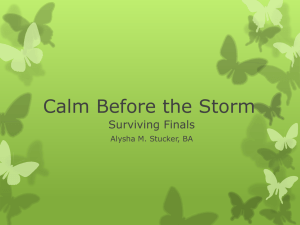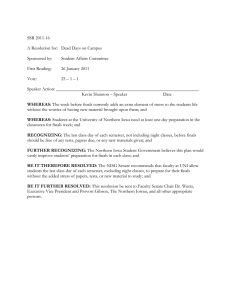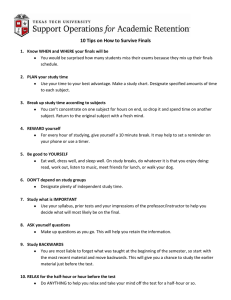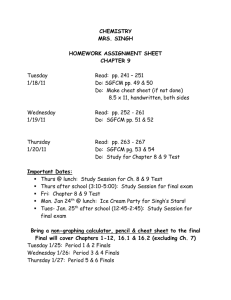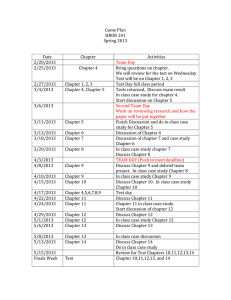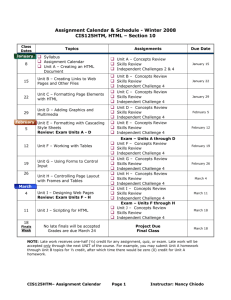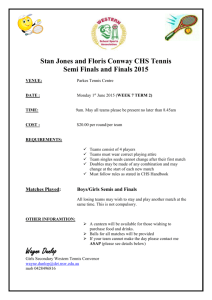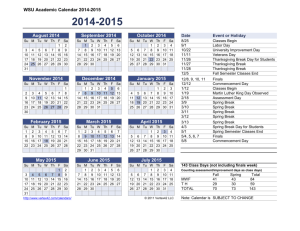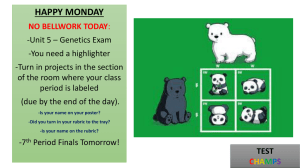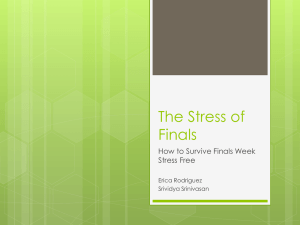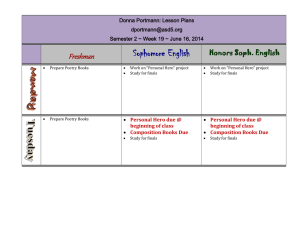Language Arts I Final Study Guide
advertisement
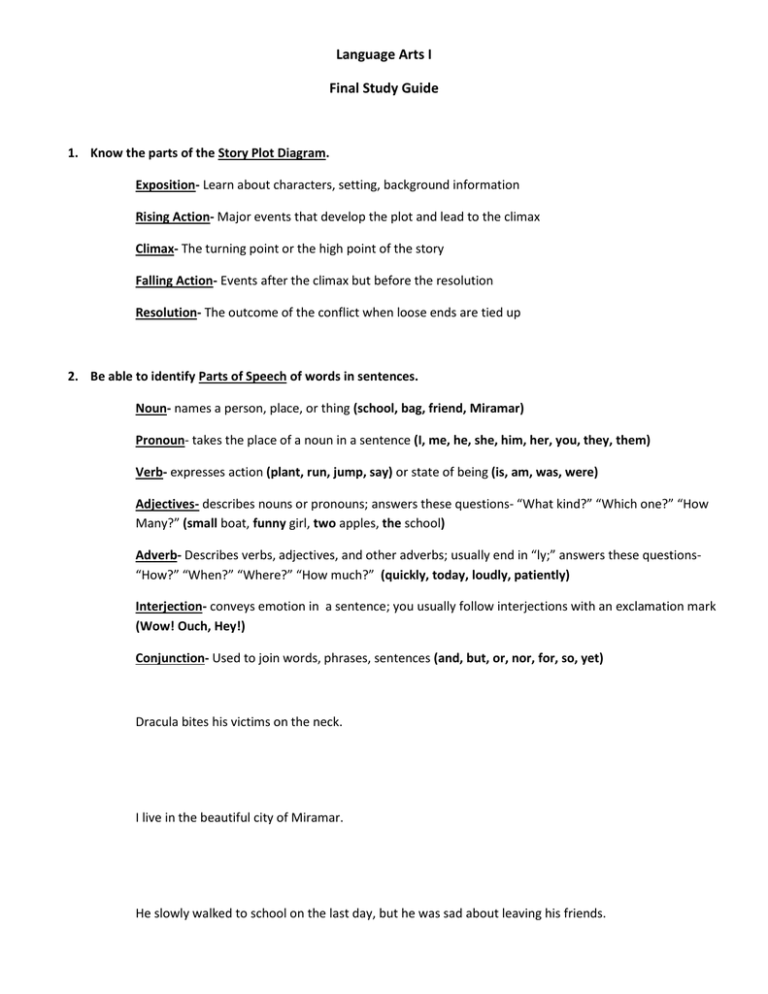
Language Arts I Final Study Guide 1. Know the parts of the Story Plot Diagram. Exposition- Learn about characters, setting, background information Rising Action- Major events that develop the plot and lead to the climax Climax- The turning point or the high point of the story Falling Action- Events after the climax but before the resolution Resolution- The outcome of the conflict when loose ends are tied up 2. Be able to identify Parts of Speech of words in sentences. Noun- names a person, place, or thing (school, bag, friend, Miramar) Pronoun- takes the place of a noun in a sentence (I, me, he, she, him, her, you, they, them) Verb- expresses action (plant, run, jump, say) or state of being (is, am, was, were) Adjectives- describes nouns or pronouns; answers these questions- “What kind?” “Which one?” “How Many?” (small boat, funny girl, two apples, the school) Adverb- Describes verbs, adjectives, and other adverbs; usually end in “ly;” answers these questions“How?” “When?” “Where?” “How much?” (quickly, today, loudly, patiently) Interjection- conveys emotion in a sentence; you usually follow interjections with an exclamation mark (Wow! Ouch, Hey!) Conjunction- Used to join words, phrases, sentences (and, but, or, nor, for, so, yet) Dracula bites his victims on the neck. I live in the beautiful city of Miramar. He slowly walked to school on the last day, but he was sad about leaving his friends. 3. Know the difference between a sentence and fragment. Sentence-group of words that express a complete thought; contains a subject and verb He rode his bike to school every day. Fragment- groups of words that does not express a complete thought To school every day Skipping down the hall 4. Be able to identify the subject of a sentence. Subject- Who or what the sentence is about; will be a noun or pronoun The firefighter rescued the family from the burning home. I will go on vacation during the summer. 5. Be able to identify types of sentences. Declarative- makes a statement; ends in a period I studied for all finals. Interrogative- asks a question; ends in a question mark Are you going to study for your finals? Exclamatory- shows strong emotion; ends in an exclamation mark Wow! I got an A on all my finals! Imperative- makes a command or request; can end in a period or exclamation mark Study for your finals! Please study for your finals. 6. Know definition of a topic sentence and be able to identify it. Topic Sentence- states or suggests the main idea or topic of a paragraph
